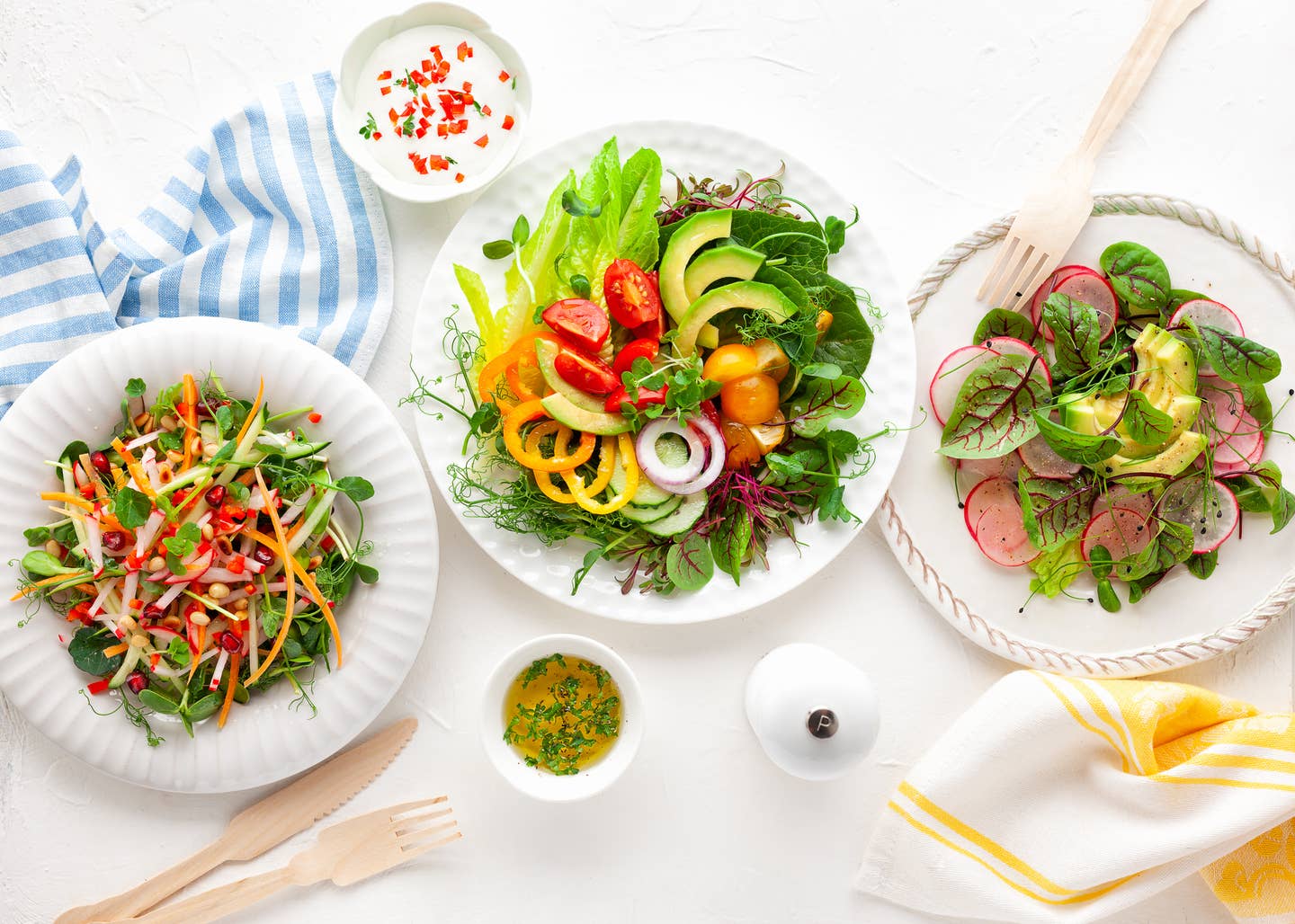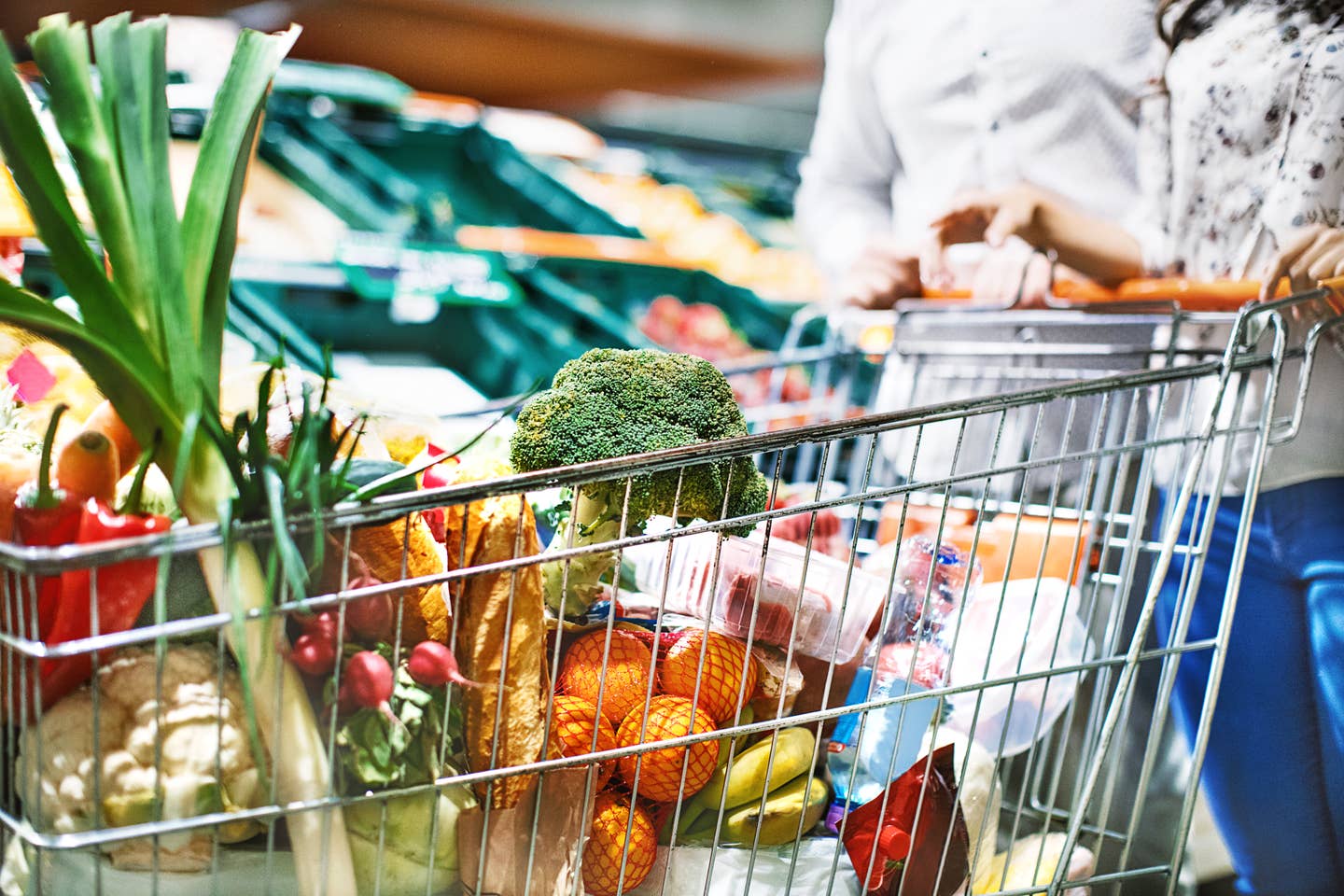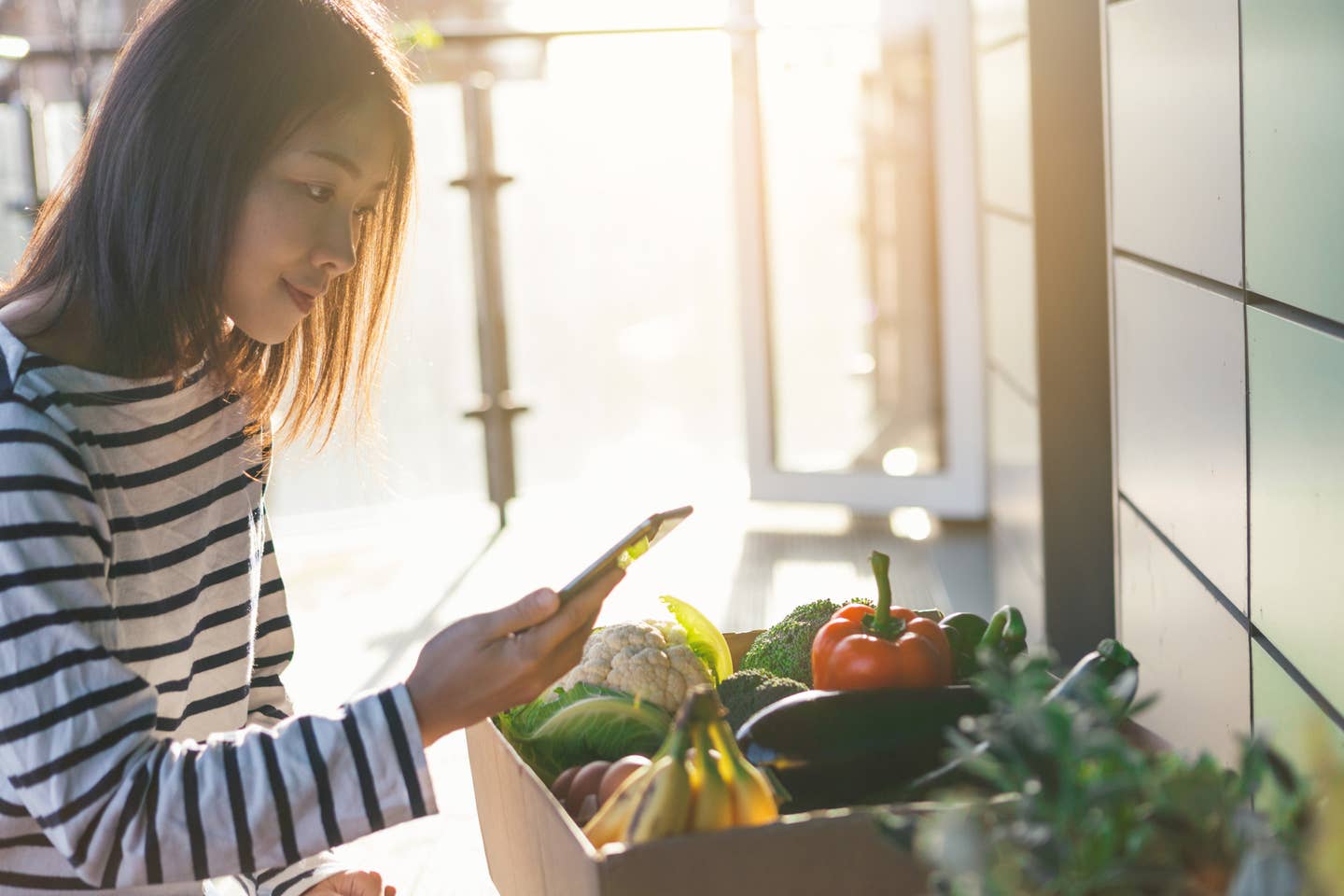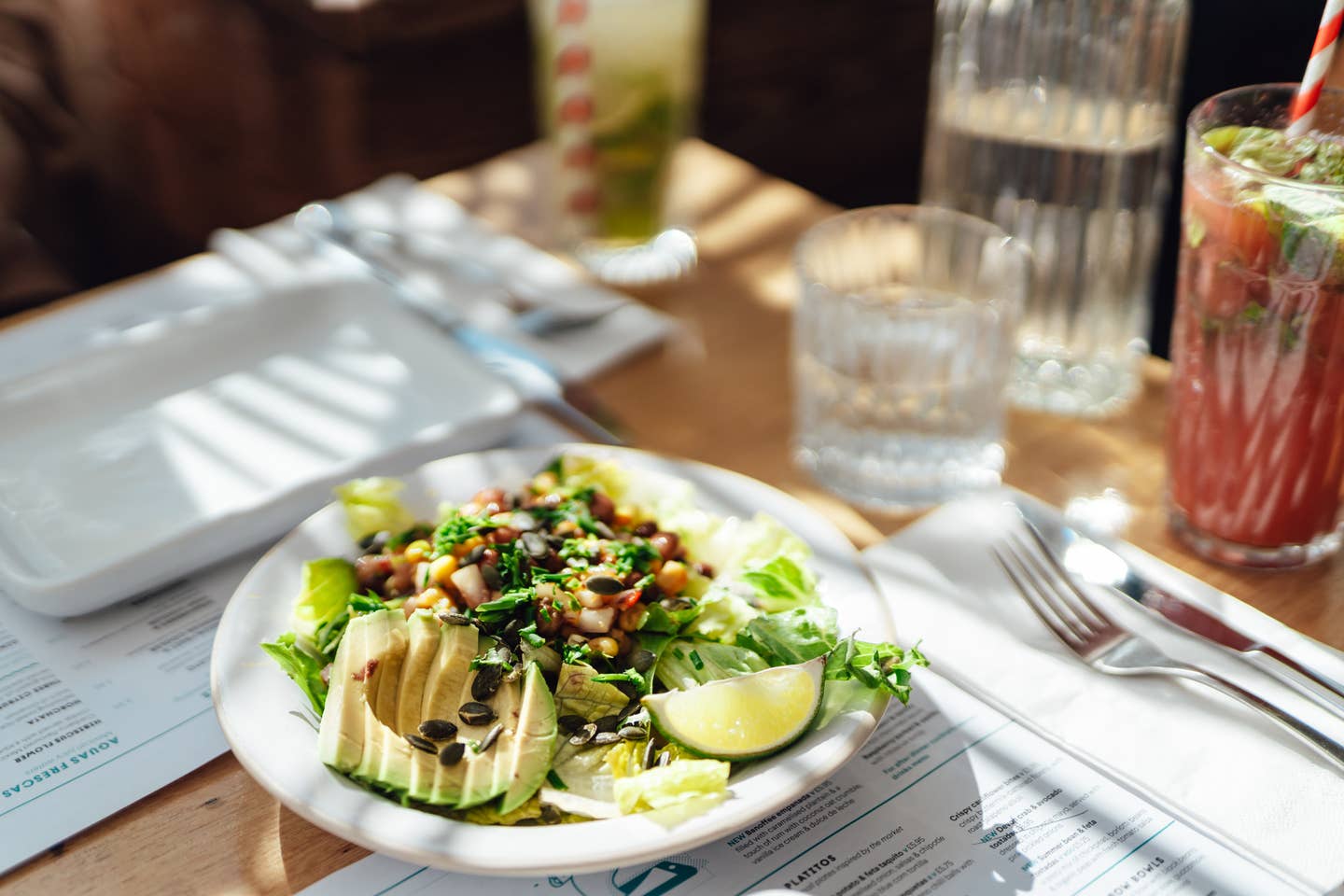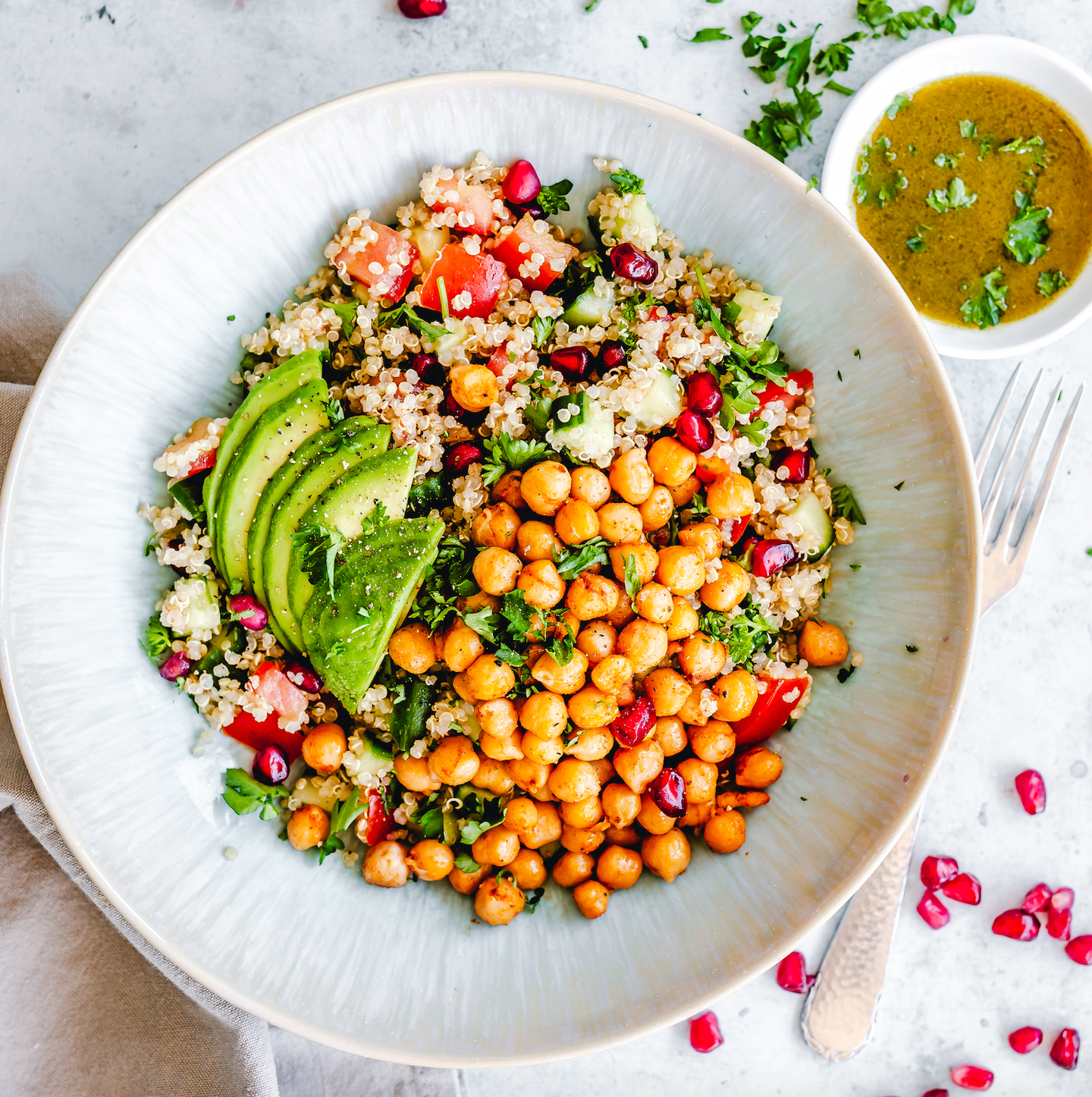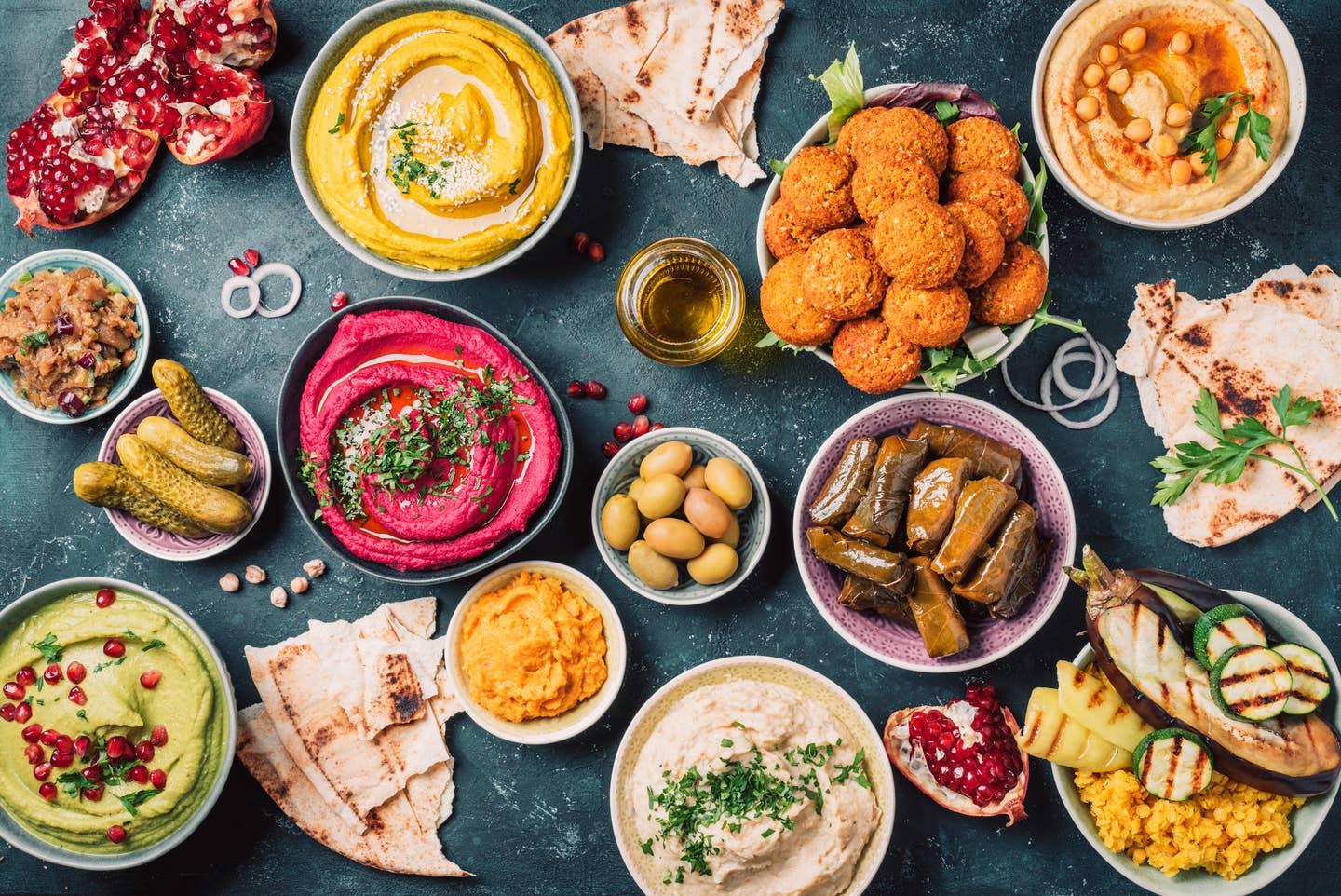
Happy World Vegan Month! Celebrate By Eating Plant-Based. Here’s How
Happy World Vegan Month, Yes, it's a thing. People even search for "When is World Vegan Month, 2022?" Well, now you know. World Vegan Day kicks off this 31-day holiday beginning on November 1st, every year! World Vegan Day is one day after our candy buzz (perfectly timed to fill you up with healthy protein-packed grain bowls for when your blood sugar crashes), and 10 days before World Single's Day.
Also notably in November, World Vegan Day comes 23 days before Turkey Day – when you can test out all your plant-based or vegan Thanksgiving side dishes – and 24 Days before Black Friday, when you'll want to buy healthy kitchen gear to eat your more plant-based diet.
What is World Vegan Day?
World Vegan Day means different things to different people, but for most of the not-vegan world, it's a great excuse to try out eating vegan or plant-based food, even if you're not committing to a long-term relationship with tofu or giving up your favorite chicken alfredo quite yet. Eating vegan, or plant-based, even for just one day or a single meal, is easy, delicious, and nutritious. Chances are you are going to be pleasantly surprised by vegan food, which not only tastes great but leaves you feeling light, energized, and fully satisfied, able to go about your day without needing a nap after you pull away from a big heavy meat-filled meal.
Vegan food is also just normal food. It's not rabbit food or grass and leaves or weird macrobiotic mush. You may already be eating vegan, whether you realize it or not. Consider this. Most Mexican and Chinese food is plant-based with just a little meat mixed in for flavoring.
What is a Plant-Based Diet?
Chances are you've heard of friends or work colleagues who tell you they are vegan. But what does that even mean, exactly? And what's the difference between eating vegan and plant-based? And where does flexitarian, vegetarian, and pescatarian eating fit into the equation?
Eating vegan means avoiding all animal products and byproducts, including meat, dairy, poultry, fish, and even honey which is made by bees and is also their food supply. Vegans also avoid consuming anything that can harm animals or fish, so if taking honey destroys the hive then the bees die. Eggs don't harm chickens, but the way farming is practiced in today's day and age, the chickens are treated so miserably that it's not only inhumane but unsafe. Vegans avoid leather (for obvious reasons) and wool (sheep get hurt) and other animal products.
The issue of health comes into play because you could eat Twizzlers until the oat fields grow (notice I avoided using the expression, "Until the cows come home, "though my Southern mother used it daily) and be vegan. What that would not be is healthy.
Most people who are going plant-based for their health try to focus on a diet rich in fiber, which means eating plant foods in a form that is as close to what you could grow, pick and cook as possible. No sodas, no added sugars, no refined carbs.
Why Should You Eat Vegan?
Eating plant-based is better for your health, the planet, and factory-farmed animals, which are treated inhumanely before they are killed for meat production. (And we all love animals!) Here's why you may want to consider eating more plant-based and vegan meals.
1. To Prevent All Major Lifestyle Diseases
Study after study has shown that eating less red meat and processed meat, less saturated fat in dairy, and fewer growth hormones that sneak into our dairy products can help reduce heart disease, obesity, type 2 diabetes, inflammation, and even certain cancers like breast and prostate cancer which are linked to hormonal triggers.
One scientific research paper, in the Journal of the American Heart Association, found that eating a mostly plant-based diet and avoiding meat and dairy reduces your chances of dying prematurely from all causes of mortality, so that's a sweeping endorsement to try it out. Yet another study showed that you can extend your life expectancy by going plant-based, and still other studies show that the earlier in life you cut out meat the better, for long-term health.
Americans today eat an average of 3,600 calories daily, roughly one-third more than the amount we need (depending on your size, age, and whether you are trying to lose weight). We load up on protein, which once our bodies are topped off, just gets stored as fat. So when you choose vegan food, you are also choosing nutrient-dense vegetables, fruit, whole grains, nuts, seeds, and legumes, which are high in fiber and antioxidants so you feel full and you nourish your body in ways that will pay you back later, in the form of health and longevity.
Plant-Based Diets Prevent Heart Disease
A "whole food plant-based diet" is considered the healthiest on the planet, even heart-healthier than the Mediterranean diet – which allows a small amount of meat and dairy, since studies have shown that saturated fat, found in animal products like meat and dairy, is harmful to long-term heart health.
In fact, heart doctors have now revised their recommendations to urge anyone with heart disease to eat what they call a green Mediterranean diet, which is even more plant-leaning, since it cuts out animal products and focuses on a mostly whole-food plant-based approach to eating that lowers heart disease risk even more effectively.
Fiber is Linked to Weight Loss
Fiber is one of the healthiest ingredients you can find to eat since it slows down the absorption of macronutrients and allows your body to burn fuel efficiently, rather than spike blood sugar or drown yourself in fat (as in sweets or fried foods).
Taking in too much energy all at once – whether it's in the form of carbs, fat, or protein –means that your body can't use it and mobilizes insulin, which carts off the extra calories as fat. When you eat plant-based, the high fiber content of your food slows down this role, which keeps your blood sugar lower, since it takes the body longer to absorb complex carbs than simple carbs. That results in no big spike in blood sugar or blood lipids, so you burn what you eat and don't have to store the excess. Result: You burn calories rather than store fat.
Doctors who treat patients needing to lose weight always educate them on the importance of fiber for natural weight loss.
Read More: The 20 Best Sources of Fiber
If You're Worried About Getting Protein from a Vegan Diet, Don't Be
When you start eating plant-based you may wonder, where will I get my protein? The answer is simple: the same place animals like cows and bigs get theirs: Plants. The protein in the meat you eat came from somewhere. The amino acids in plants can feed your body as readily as the great ape (an herbivore), and as long as you pay attention and are mindful, getting your daily protein requirement is simple. Focus on legumes and nuts, seeds, and whole grains, and you'll be surprised at how quickly it all adds up. If you like tofu, you have it made!
2. Plant-Based is Planet-Friendly
When you think of climate change and global warming, you may believe that these storms, floods, fires, and droughts are coming out of nowhere. But the rising seas all start at the melting snow caps at the Earth's North and South Poles and there is a lot that we can do to change our fate by lowering our personal CO2 and greenhouse gas emissions. You don't have to drive a Tesla to be climate conscious.
In fact, the foods you eat have a big impact on how much methane, CO2, and greenhouse gasses they require to produce, as well as how much water is required. Every consumer decision we make starts the cause and effect of climate change.
A new type of consumer, the "Climatarian," is emerging, which simply means someone who is conscious of how the decisions we make impact the world we live in.
We know that we can lower our greenhouse gas emissions by 61 percent when we go plant-based. And by not eating packaged food and sodas, you can cut down on unnecessary pollution by avoiding extra single plastic usage, using public transportation, or biking or walking to work. But you can do even more to lower your CO2 emission equivalents by eating plant-based. That's because animal farming uses up the largest segment of greenhouse gases created by our food systems.
3. Protect the Welfare of Farmed Animals
How Can I Eat Vegan?
Guacamole and chips, hummus and pita toast, avocado toast, puttanesca sauce – or any combination of olive oil, peppers, mushrooms, and tomato on pasta all qualify as plant-based. So does chili, vegetable soup (made with vegetable stock), pasta primavera, as well as classic Bruschetta, vegetable stir fry, and lots of other delicious meals.
Dairy-free selections like oat milk? Vegan. Almond or soy milk yogurt? Also vegan. All the ice creams that are made of coconut or other plant-based or nut creams are also vegan. Guess what? So is tofu! If you already eat this way and for the most part do your best to stay away from chicken, meat, dairy, and other animal products, you are mostly plant-based.
And if you make your favorite fruit smoothie with almond or oat milk, then you are already vegan in the morning! It's fun to see just how easy and delicious it is to eat vegan or plant-based.
Read More: Sign Up for the Smoothie of the Day
What Do Vegan Meals Taste Like?
Simply delicious. And they won't leave you feeling tired or like you need a nap after you eat. But don't take our word for it. Try out some vegan recipes for yourself.
For delicious vegan breakfasts, lunches and dinners, and desserts, check out The Beet's Plant-Based Recipes:
Bottom Line: Happy World Vegan Day. Try Eating Vegan for a Day!
Today, try eating at least one vegan meal. You can eat vegan for one day and try it out, and not make a commitment to never having meat or cheese again. Who knows? You may find that eating plant-based is so easy and delicious, and makes you feel so good, that you want to keep it up for a week, a month, or longer.
For more advice on going plant-based, visit The Beet's Beginner Guide articles.
More From The Beet
